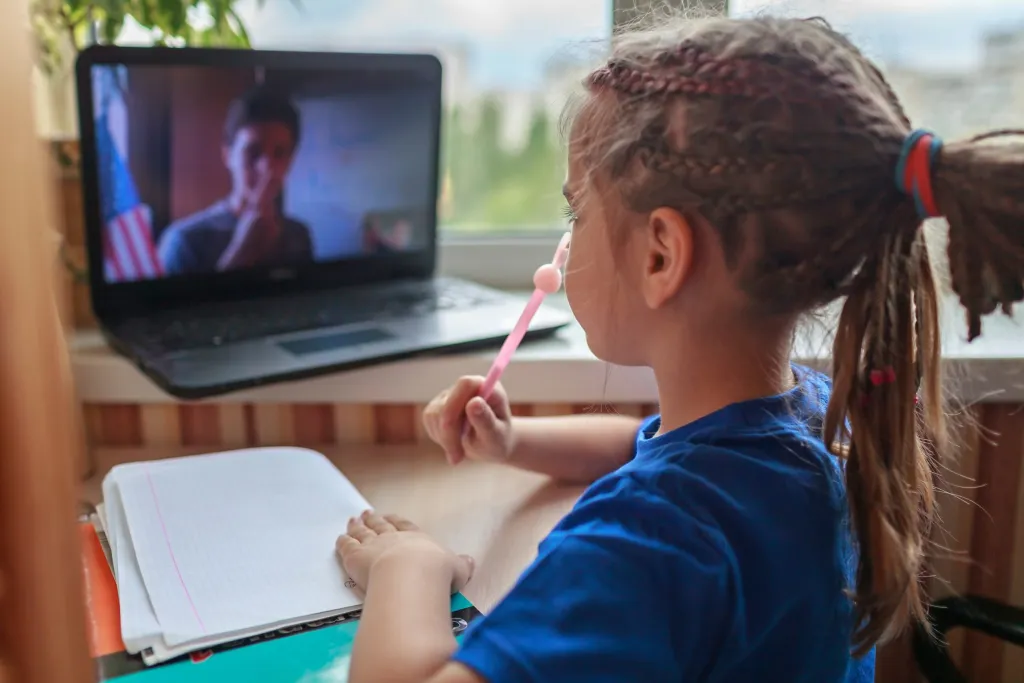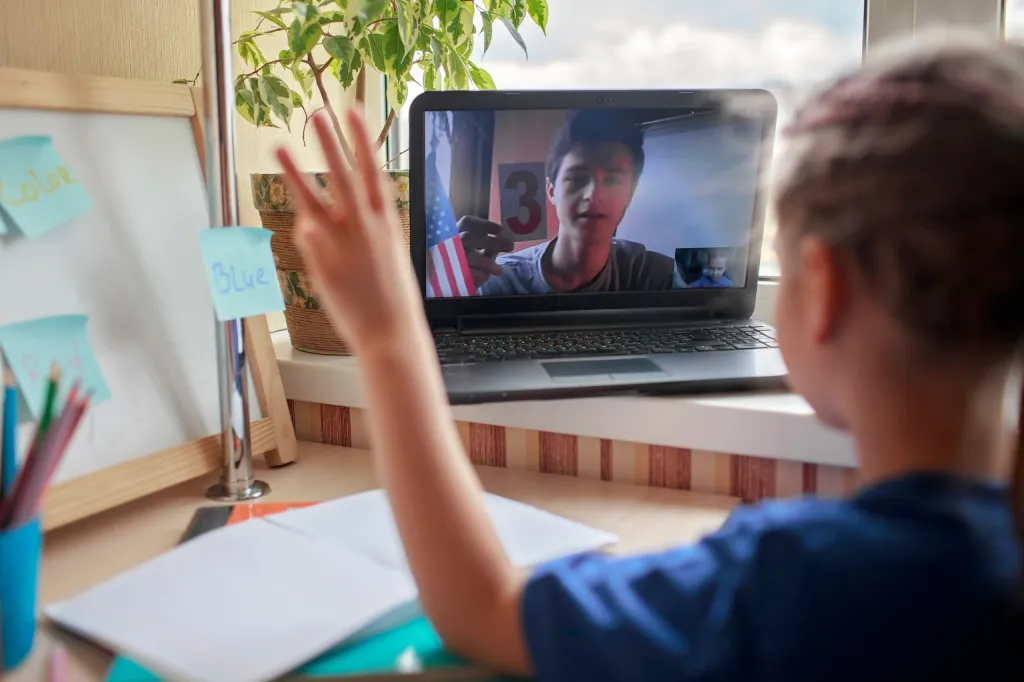- Features of the immersion method
- How does a native teacher connect with the children?
- A final word
Many parents that want their kids to study English still believe in the stereotype that the best method of learning English is the one they use in schools. This involves reading, translating texts, writing down grammar rules and doing grammar exercises, memorizing various topics and dialogues etc. We all know that this does not help children learn and speak English well, even after 10 years of classes at school. Of course, we all want better results for our kids. But this paradigm overrides everything else. Not everyone realizes that there is a different, better way to learn how to speak a foreign language.
- “What will they be able to understand if the native speaker only speaks in English?”
- “They don’t speak a word of English! How can my child learn anything?”
- ”My child comes home and can’t even tell me what they learned!”
We hear many similar comments. Nevertheless, scientific research proves that the most efficient way for children, especially the younger ones, to learn English is to be immersed into an English-speaking environment. And no one can do that better than a native speaker.
- First, a native speaker cannot address the kids in their mother tongue because they simply don’t speak it.
- Second, the child understands that the teacher cannot switch to their mother tongue, and as a result will be more attentive during the lessons.
- Third, the child’s cognitive processes, such as memory, attention and imagination, will be activated to the highest extent during a lesson with a native speaker, since they will need to try to understand what is being said, memorize words and try to respond.
- Fourth, communication with a native speaker is a lot easier because there are no distractions, all of their brain resources are concentrated on understanding the teacher; on the other hand, the teacher also understands that there is no other way to convey the necessary information to the child other than in English, so they will try to involve their body language, gestures and facial expressions in this process.
- Fifth, after conducting a survey with kids who studied with both a native speaker and a teacher who spoke their language, it turned out that most kids say that native speakers provide better, clearer explanations and the lessons are much more (wait for it) … fun! Because there is no unnecessary information, everything is to the point, all the instructions are clear and teachers use very simple phrases and words.
So here you go.
Then why can’t my child explain what they did during their lesson?
The answer is simple. Children can’t find the right words for it in their mother tongue. They have been listening to English speech during the entire lesson and trying to make sense of it without translating it into their native language. After the lesson, they are no longer in the environment that requires them to think, listen and talk in English, so their brain switched back to their mother tongue. It’s like asking adults what they did at work. It’s simple – they worked! That’s what your child was doing as well.
Features of the immersion method
Children can’t tell you what exactly they learned because they don’t learn separate elements of the language system with a native speaker (like words, for example), they learn the whole system altogether and “absorb” its indivisible laws and rules. At first glance, it might seem that this is a lot more difficult than learning words and grammar rules in order to formulate a sentence. But these are four steps that need to happen in a brain of… a child! This is something that not even all adults can do. So that’s why if you immerse your child in the English-speaking environment, they will struggle only at first. Soon, their brain will adapt.
Try to remember how kids learn to play. They don’t read the rules to each game, they just watch others and repeat after them. They use the same principle when learning English. Of course, they need some time for observation before they can repeat after someone, so don’t make any hasty conclusions when your child doesn’t understand everything in their very first lesson.

How does a native teacher connect with the children?
The most important thing is to pass the psychological barrier and create a friendly positive environment for all the children. That is why the teacher’s friendly face, sincere smile and a sparkle in their eyes matter.
Some kids are very shy, that’s why teachers often use a helper, such as a doll or a puppet that repeats everything after the teacher and conveys it to the child. It is much easier to make the children feel more comfortable and open up.
Another important process is understanding the phrases that are often used during the lesson. Usually, these are phrases or words like ”listen”, “say”, “repeat” etc. These phrases are repeated in every lesson and kids usually remember them quite quickly. But the first time the teacher uses these phrases, they help children understand them by following them up with body language, gestures and facial expressions. It helps kids to easily understand and remember them.
Gestures and facial expressions are also used to evaluate kids’ work. Such phrases as “Good job”, ”super”, “great”, and “excellent” are easily associated with something pleasant if delivered with the right tone of voice, facial expressions and gestures, a thumbs up, for example.
Praising kids for their success is an integral part of connecting with them. Children cannot evaluate their own actions, so the teacher’s reaction encourages and inspires them to continue learning the language.
A final word
A native speaker teaches English the same way you taught your child their mother tongue. It means that it happens naturally, but at a slightly slower pace. This ensures that the child has an appropriate knowledge base – speech comes first, then the ability to understand, hear and talk with the teacher, and then the rest. This approach makes further attempts to learn reading and writing a lot easier. And you can be sure that kids who are learning English with a native speaker will never say it’s too complicated or boring. Do you still have doubts?
We recommend you try Novakid, an online English school for children aged 4-12 with native teachers. They conduct lessons in precisely the way that we described. Try it, the first lesson is free!








































